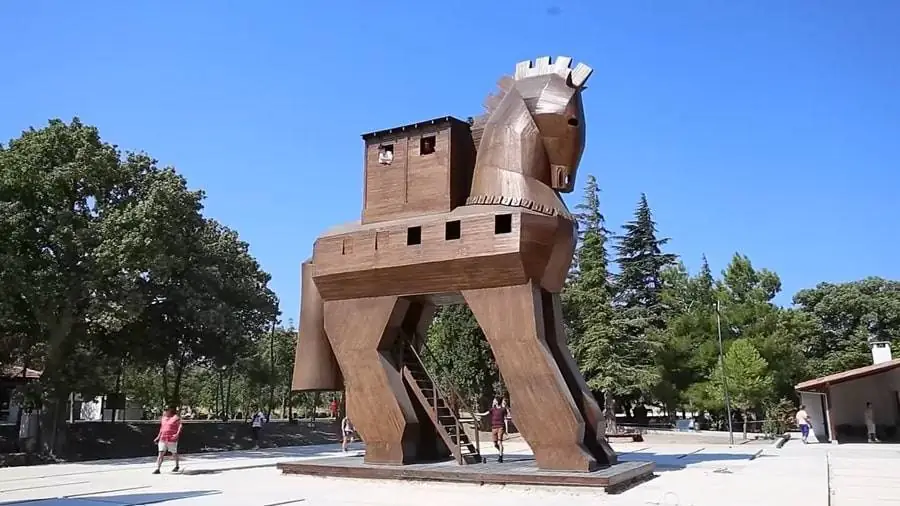Troy or Truva in Turkish, a city that has been around for more than 4,000 years, was once the hub of ancient civilizations. Before it was discovered for the first time in the 19th century, many people thought it was just a mythical city that was only referenced in stories. The region is a once-great metropolis whose remnants can be seen at Hisarlik Village, which is close to Canakkale metropolis.

All that remained were the remnants of the devastation caused to Schliemann, the well-known German archaeologist who was dubbed a “treasure hunter” by some. A group of German and American archaeologists is currently working on a project sponsored by Daimler-Benz to reconstruct the Bronze Age Troy, while a Turkish team is engaged in legal battles with Germany and Russia to recover the Trojan treasures that were pilfered.
♦ 2 Days Gallipoli Troy Tour From Istanbul
Troy made appearances in Latin and Greek literature. Homer first brought up the Troyan legend in his Iliad and Odyssey. Later on, Greek drama’s most well-liked subject became it. The most famous narrative of the region sacking can be found in Virgil’s Aeneid book. Furthermore, false narratives attributed to Dictys Cretensis and Dares Phrygius exist.
Troy possessed significant strength during the Bronze Age due to its advantageous location sandwiched between Europe and Asia. The region was a hub of culture in the third and second millennia BC. Between 1100 and 700 BC, the city was deserted following the Trojan War. The Troas region was first colonized by Greeks circa 700 BC; Troy was renamed Ilion. Around the fourth century BC, Alexander the Great governed the area. General Sulla of the Romans largely reconstructed Troy after it was taken over by them in 85 BC, and it was given the name New Ilium. The region became less significant during Byzantine hegemony.

